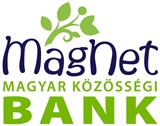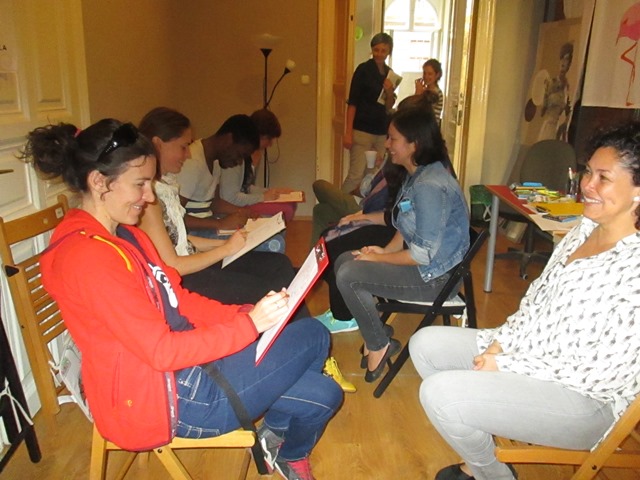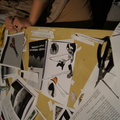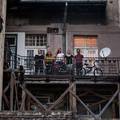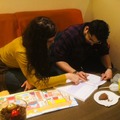According to Wikipedia, Globalization is a process of international integration arising from the interchange of world views, products, ideas and other aspects of culture, society, economy and technology. Such interactions among countries throughout the world aim at uniting their markets, societies and cultures, through a series of social, economic and political transformations, granting them a global status.
Needless to say, this process previously explained in a very general sense, brings about a string of consequences which will be considered either negative or positive by each one of us. According to Stephen Castles, "Migrations are simultaneously a result of global change, and a powerful force for further change in both sending and receiving societies." This topic totally relates to the current situation in Europe.
Now, as far as reality is concerned, my reality... when consuming a product from your country while being in another country, seldom it is thought about the long journey and the process undergone by it in order to be there with you on the spot.
"Fortunately" nowadays Colombian bananas can get on different supermarkets in the city (Budapest), not as fresh or sweet as they would be back in my country, but eating them melts my heart and warms my belly, so I'm grateful that Globalization makes this wonderful treat come true.
I had never stopped to think about this before nor even analyze it, so meeting with the Ready Study Go! group from Artemisszio was quite an interesting experience. It was good to join a group of 19 people of different nationalities gathered in a room.
During this activity the question of whether this so-called globalization is positive or negative was raised. Indeed it is good for my little Colombian heart that misses those tastes from my country but if we analyze further the process of how it is carried out, then doubts arise.
How many people are involved in the process, from the farmer working on the banana plantations to the owner of the supermarket? The list is very long.
Inevitably, another term pops up in the debate. Is this a fair trade product?
What is FAIR TRADE?
Wikipedia says:
“Fair trade is a social movement whose stated goal is to help producers in developing countries achieve better trading conditions and to promote sustainability. Members of the movement advocate the payment of higher prices to exporters, as well as higher social and environmental standards. The movement focuses in particular on commodities, or products which are typically exported from developing countries to developed countries, but also consumed in domestic markets (e.g. Brazil and India) most notably handicrafts, coffee, cocoa, sugar, tea, bananas, honey, cotton, wine,[1] fresh fruit, chocolate, flowers, gold,[2] and 3D printer filament.[3] The movement seeks to promote greater equity in international trading partnerships through dialogue, transparency, and respect. It promotes sustainable development by offering better trading conditions to, and securing the rights of, marginalized producers and workers in developing.”
It sounds great in Wikipedia but actually, it is definitely not as good as it sounds.
The results of our group workshop revealed some terrible data (2,2,7,11,8) as we contrast them with the actual percentages received by each party at the end of the day. Really, the result is totally disproportionate and it can fairly be said to be unfair. Even for us, who were just performing an exercise, it was difficult to reconsider the percentages and redistribute them among the five groups visualized in the exercise.
Actual data shows percentages distributed as follows:
- Employees of the plantation. 1%
- Plantation owner. 5%
- The importer. 7%
- Transporter. 4%
- Owner supermarket. 13%
The last part of the wikipedia entry states: “The movement seeks to promote greater equity in international trading partnerships through dialogue, transparency, and respect. It promotes sustainable development by offering better trading conditions to, and securing the rights of, marginalized producers and workers in developing.”
The truth is that there is yet a long way to be trodden in order to reach that description.
But the issue applies to many other areas of our lives and after raising the question, it would be good to take steps toward finding solutions, however large or small the steps taken, what is important is to take them.
The state of affairs on a global level draws on a cumbersome picture at the moment and right now, at this point in history, no one in Hungary can turn a blind eye to the refugees' situation. Big or small we should take the step to contribute to the outcomes or consequences of such globalization.
Claudia Andrade
September, 2015.



